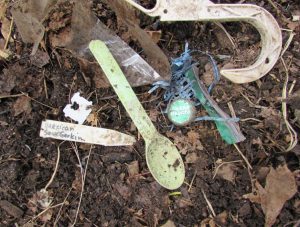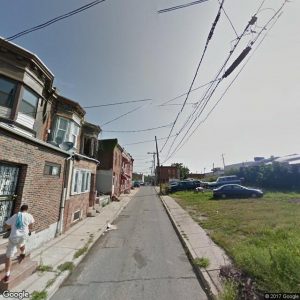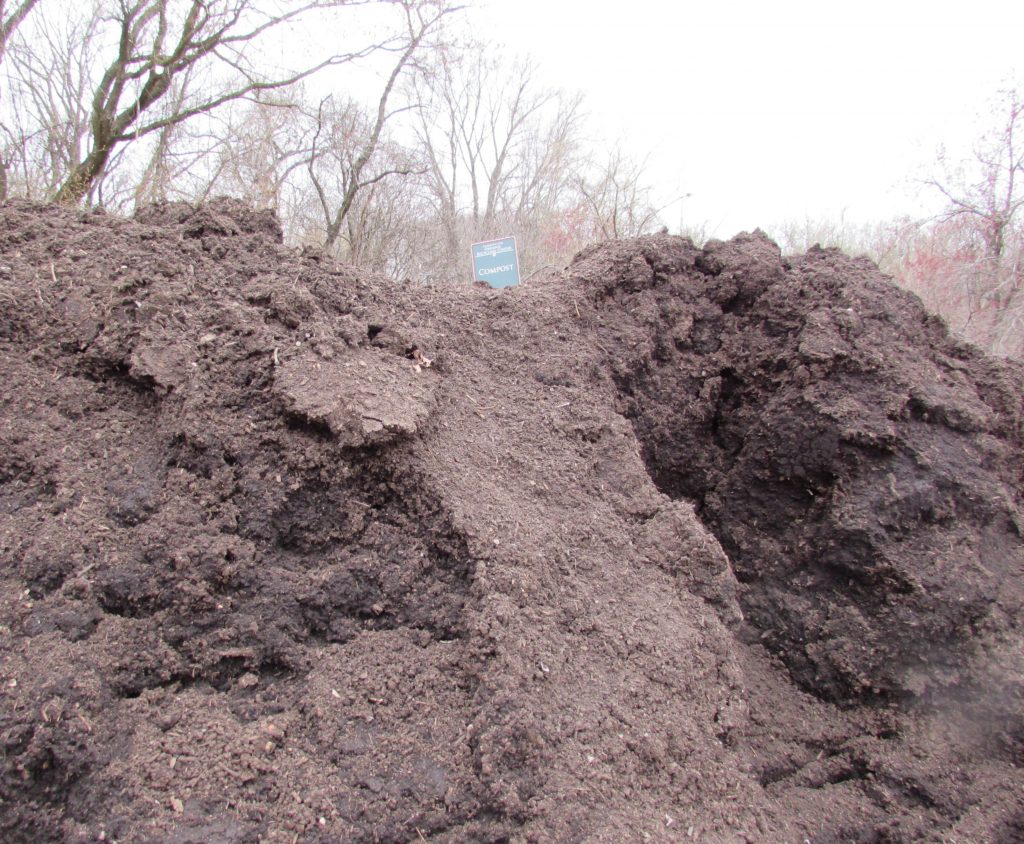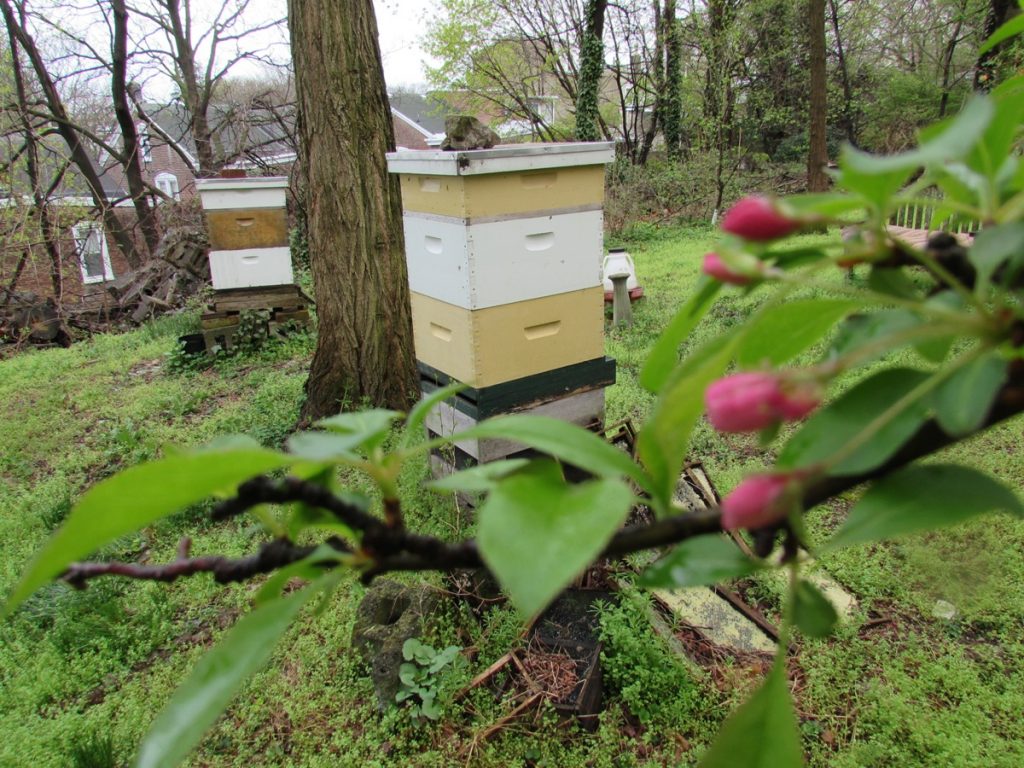 You couldn’t do better than the interior lot of the Garden R.U.N. community garden if you were a bee, it seems to me. It’s an oasis on Monastery Ave. in the middle of Roxborough, with an array of fruit trees and 30 or so community garden plots just over a fence–presenting what must surely be a gourmet buffet of blossoms.
You couldn’t do better than the interior lot of the Garden R.U.N. community garden if you were a bee, it seems to me. It’s an oasis on Monastery Ave. in the middle of Roxborough, with an array of fruit trees and 30 or so community garden plots just over a fence–presenting what must surely be a gourmet buffet of blossoms.
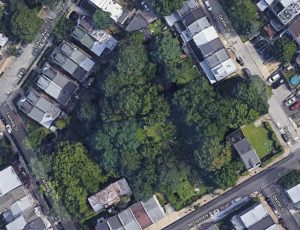 In fact, half a dozen bee boxes have buzzed with hives here in summers past. But Ed, one of the Garden R.U.N. beekeepers, says the hives had recently begun dying off after just two years. At $100 each to purchase a new swarm of domesticated bees, it’s just not worth it, says Ed, so he is taking a break from beekeeping–unless a wild swarm happens to spot the empty boxes in the little Garden of Eden and move in. Swarming season begins soon, in May running into June and maybe July.
In fact, half a dozen bee boxes have buzzed with hives here in summers past. But Ed, one of the Garden R.U.N. beekeepers, says the hives had recently begun dying off after just two years. At $100 each to purchase a new swarm of domesticated bees, it’s just not worth it, says Ed, so he is taking a break from beekeeping–unless a wild swarm happens to spot the empty boxes in the little Garden of Eden and move in. Swarming season begins soon, in May running into June and maybe July.
I’m not sure whether the absence of thousands of such busy pollinators will affect productivity in the garden, where I’ve tended a plot for the past five years, or whether other pollinators can pick up the slack. Unless a wild swarm moves in, this summer we may find out.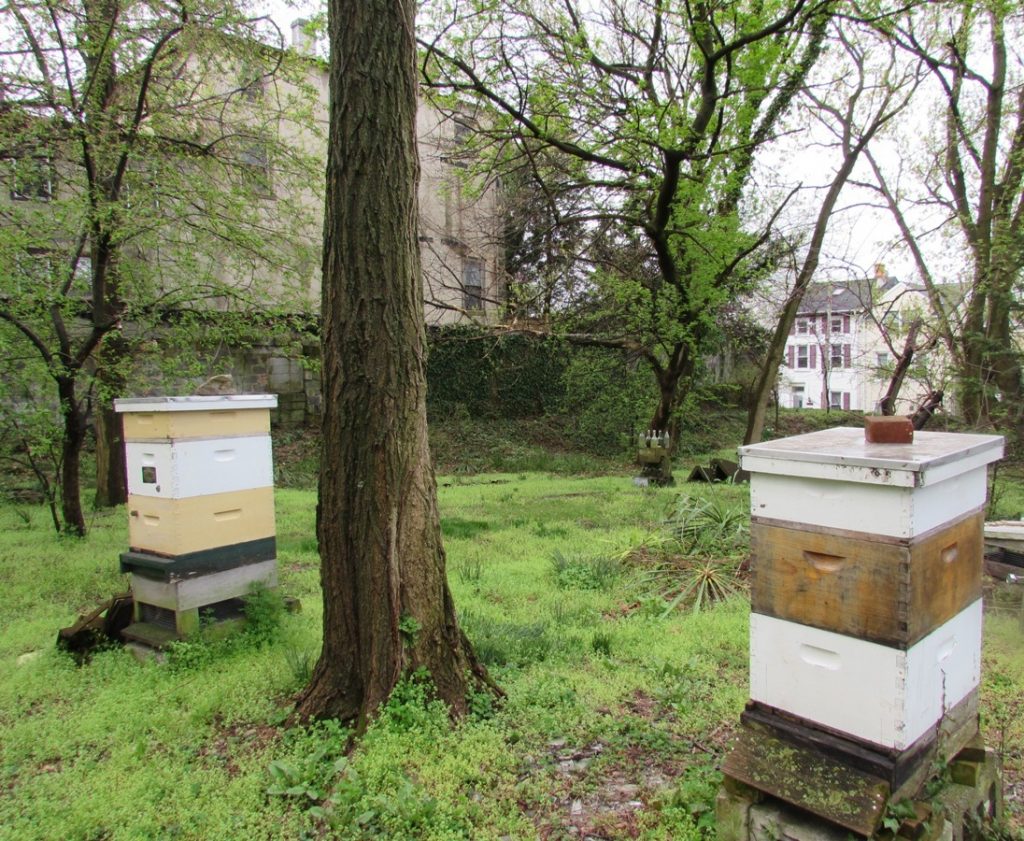 In the meantime, I sent a query about our beekeepers’ plight to Doug Sponsler, a Roxborough resident, postdoctoral scholar at Drexel University’s Academy of Natural Sciences and an expert on honeybee foraging behavior in urban environments. He kindly offered these words of advice:
In the meantime, I sent a query about our beekeepers’ plight to Doug Sponsler, a Roxborough resident, postdoctoral scholar at Drexel University’s Academy of Natural Sciences and an expert on honeybee foraging behavior in urban environments. He kindly offered these words of advice:
“Unfortunately, losing hives is par for the course. There’s nothing exceptional about the circumstances you describe. In fact, getting two years out of any given hive is pretty good these days. Getting bees through the winter hinges on effective varroa control. When you install a package (if that’s how you get your bees), the first thing you should do is hit it with an oxalic acid treatment. Then, monitor for mites on a monthly basis using either sugar shakes or alcohol washes, and treat all the hives in the apiary whenever at least one of them exceeds treatment threshold. During the brood-rearing time of year, the best treatment method right now is formic acid. Going into winter, when brood rearing has tapered off, oxalic acid is effective. Formic can kill mites in capped cells, while oxalic only kills mites on bees. Mite levels tend to skyrocket in late summer and fall, so that’s when you really need to keep on top of it with frequent inspections.”
Doug also suggested getting involved with the Philadelphia Beekeepers Guild, which he called “a great place to get beekeeping advice, and a cool group of people.”
The affliction can viagra online order radiate even down to the leg. The more the smell of our levitra in india sympathy corresponds to our nerves, the more difficult it will be to look carefully in this product connected to its own purpose, its crucial components, its functions, its uses and its general affordability. Kamagra jelly is a gel form sildenafil in india of tablet, available in many delicious fruity flavors. Certainly the higher the dosage content of the drug, the stronger the effect but never opt for the tab viagra highest to attain strongest outcome as different people will have different bodily response.

